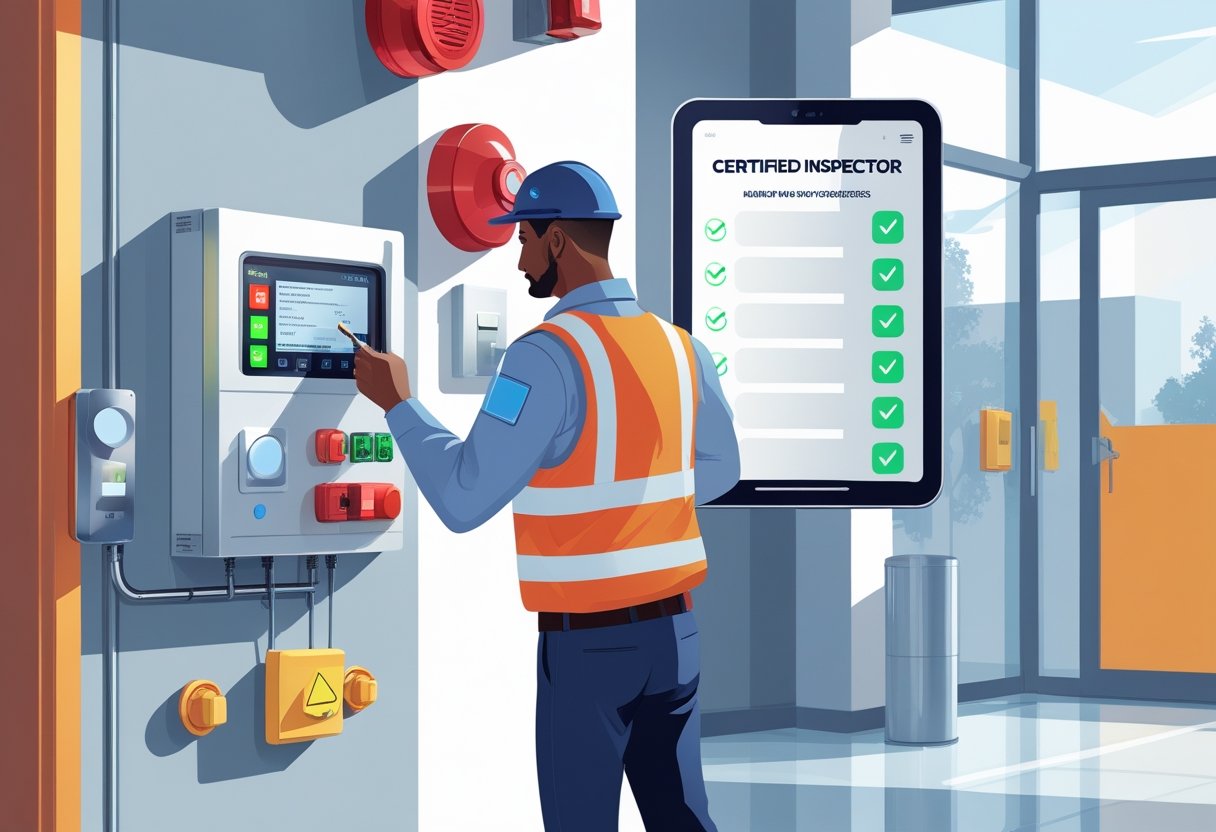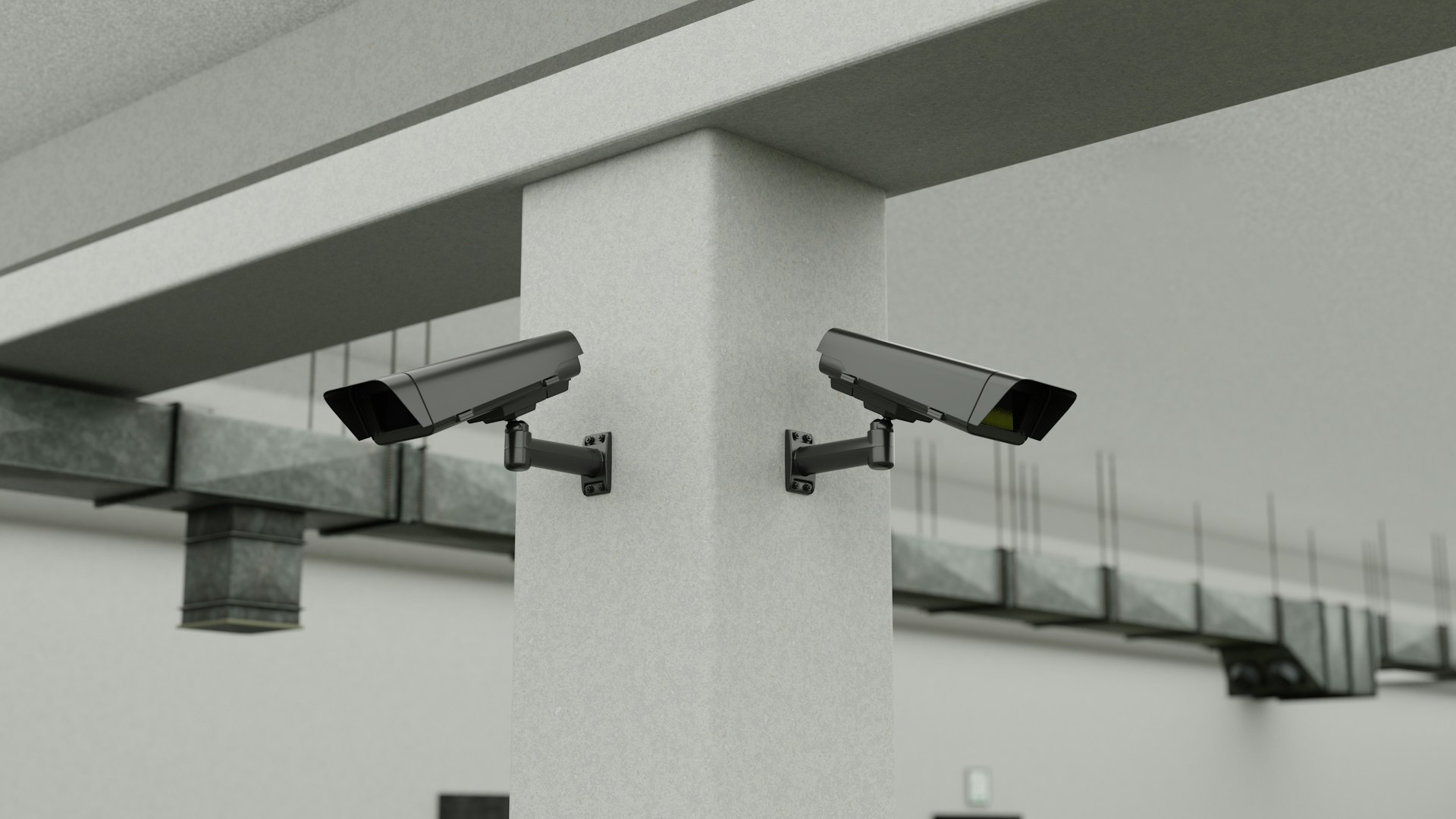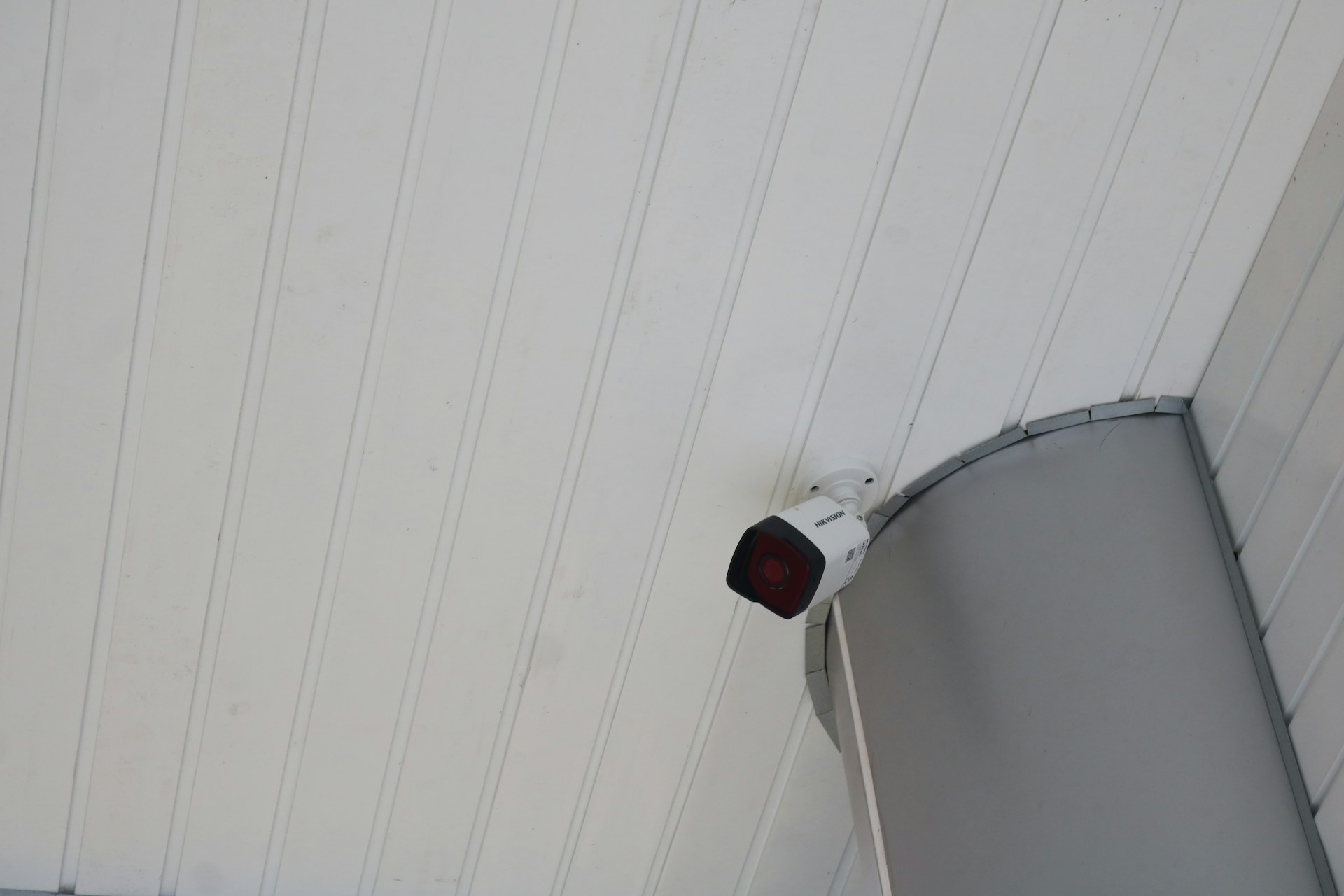As fire safety regulations become increasingly stringent, obtaining certification in alarm and fire systems is essential for professionals in the industry. Whether you're aiming to enhance your skills or comply with local codes, these certifications directly impact your career prospects and credibility. With specialized training, you can ensure that your knowledge aligns with the requirements of the greater Houston area, making you a valuable asset in fire protection and safety.
These certification programs cover critical areas such as system installation, maintenance, and inspections. By participating in these programs, you'll not only gain a deeper understanding of fire alarm systems but also keep up with the latest technologies and standards in the field. Engaging in ongoing education is key to staying competitive and ensuring the safety of the communities you serve.
In the greater Houston area, various institutions offer tailored training and certification options that can fit your specific needs and schedule. Taking this step demonstrates your commitment to excellence and safety, setting you apart from your peers in this vital industry.
Understanding Alarm and Fire Systems Certification
Certification in alarm and fire systems is vital for professionals in the field. It ensures competence in installation, maintenance, and compliance with regulations. A solid understanding of this certification can greatly enhance your career prospects and service quality.
What Is Alarm and Fire Systems Certification
Alarm and fire systems certification is a credential that verifies your skills in working with fire alarm systems. This includes areas like installation, testing, maintenance, and troubleshooting. Various organizations, such as NICET and NFPA, offer certifications tailored to different expertise levels, helping technicians demonstrate their proficiency.
To obtain certification, candidates typically must complete a combination of education and hands-on experience. Exams may include both theoretical and practical components. Certification helps ensure that fire alarm systems operate effectively and meet local safety standards.
Importance of Certification for Fire Alarm Systems
Certification is critical for ensuring the functionality and reliability of fire alarm systems. With proper certification, you prove your ability to comply with state and local codes, which can significantly impact safety in residential and commercial settings.
In regions like Greater Houston, certified technicians are often preferred by employers, enhancing your job prospects. Moreover, certification can lead to higher wages and opportunities for advancement within your career. It shows clients and employers that you are committed to maintaining high safety standards.
Regulatory and Compliance Considerations
Understanding regulatory and compliance aspects is essential for anyone involved in alarm and fire systems. Fire alarm systems must comply with local and national codes such as NFPA 72, which governs the installation, maintenance, and testing of these systems.
As a certified technician, you need to stay informed about changes in regulations. Complying with these standards not only protects lives but also ensures that your work aligns with legal requirements. Non-compliance can lead to serious consequences, including fines and liability for fire-related incidents.
In Greater Houston, adhering to regional building codes serves as a vital aspect of your responsibility in ensuring public safety through robust alarm systems.
Types of Certifications and Credentials
Understanding the types of certifications and credentials is crucial for advancing your career in fire alarm systems. Each certification has its unique focus, helping you demonstrate competence and professionalism in this field.
NICET Fire Alarm Certifications
The National Institute for Certification in Engineering Technologies (NICET) offers various Fire Alarm Certifications tailored for professionals involved in design, inspection, and maintenance. These certifications come in multiple levels, with each level demanding a specific combination of work experience and exam completion.
The Fire Alarm Systems certification covers system design, installation, maintenance, and inspection processes. Achieving NICET certification can significantly enhance your credibility as a certified fire alarm technician. This certification is particularly valuable in Houston, where local regulations often emphasize the need for qualified professionals.
ESA Fire Alarm Certifications
The Electronic Security Association (ESA) provides specialized certifications for fire alarm system technicians, designers, and installers. Their Certified Fire Alarm Technician exam enhances your skills related to fire alarm systems.
To qualify, candidates must have a valid ESA CAT Level 1 certification or equivalent experience. Completing this certification demonstrates your commitment to quality and safety in fire alarm services, which is essential for establishing trust with clients in the Houston area.
NFPA and Other Recognized Certifications
The National Fire Protection Association (NFPA) offers respected certifications focusing on various aspects of fire protection and safety. Programs from NFPA can help you gain recognition in your field through competency-driven training.
Individuals pursuing NFPA certifications benefit from an extensive array of resources and networks, enhancing their professional development. These certifications are increasingly valued by employers in Houston, as they underpin your knowledge of fire safety standards and practices in the industry.
Certification Levels and Career Pathways
Understanding the various certification levels can enhance your career as a life safety professional. These certifications pave the way for advancement and specialization within the fire alarm systems industry.
Entry-Level and Technician Certifications
To start your career, obtaining entry-level certifications is essential. The Certified Fire Alarm Technician certification validates your knowledge and skills in basic fire alarm system installation and maintenance. Many states recognize this credential, making it a requirement for many employers.
Additionally, educational programs through organizations like the National Institute for Certification in Engineering Technologies (NICET) provide foundational knowledge in fire alarm systems. Gaining practical experience alongside these certifications will establish a crucial base for your professional journey.
Advanced Certifications for Fire Alarm Professionals
After gaining some experience, advancing to higher certifications can significantly enhance your career prospects. Advanced certifications, such as NICET's Fire Alarm Systems Level II and III, focus on system design, installation standards, and code compliance.
These levels require a mix of hands-on experience and examination success. Achieving these certifications will not only increase your credibility but also unlock leadership opportunities in project management and system design roles.
Career Progression for Life Safety Professionals
The career pathway for life safety professionals is dynamic. Initially, you may work as a fire alarm technician, focusing on installation and basic inspections. With time and experience, transitioning into roles such as a project manager or systems designer becomes feasible.
Continuing education and obtaining certifications from organizations like the National Fire Protection Association (NFPA) can further enhance your qualifications. Networking with other professionals and participating in industry workshops can also provide valuable insights into career advancement.
Training and Exam Preparation
Effective training and preparation are crucial for success in obtaining fire alarm certifications. Understanding the course formats available, accessing the right study resources, and maintaining certification through continuing education are all integral parts of this process.
Course Formats and Delivery Methods
When pursuing fire alarm systems certification, you have several course formats to consider. Options typically include in-person classes, online courses, and hybrid programs. In-person training allows for hands-on experience and direct interaction with instructors, which can enhance learning.
Online courses offer flexibility to study at your own pace, making them ideal for busy schedules. Many institutions in the greater Houston area, such as APM Fire Academy, provide comprehensive online training tailored to your needs. You can also find hybrid formats that combine both methods, offering the best of both worlds.
Study Resources and Exam Preparation Tips
Preparing for your fire alarm certification exam requires the right resources. Start with the official NICET study guides and reference materials recommended by industry professionals. These resources help familiarize you with exam content and structure.
Utilize online practice tests and sample questions to assess your knowledge. Establish a regular study schedule to cover all relevant topics, such as system layout, equipment selection, and troubleshooting techniques. Joining local study groups can also provide support and motivation from peers who are preparing for the same exams.
Continuing Education and Recertification
Continuing education is vital in maintaining your fire alarm systems certification. Most credentials require periodic renewal, which involves completing additional training or professional development activities.
You should stay updated on changes in codes and regulations, as these often affect industry standards. Participating in workshops and seminars can help keep your skills relevant. Many organizations offer recertification courses specifically designed for fire alarm systems in the greater Houston area, ensuring you meet the requirements necessary to retain your certification.
Certification Impact on Professional Roles and Sales
Gaining certification in alarm and fire systems significantly influences the roles of professionals in sales and technical fields. It enhances your qualifications, fosters trust with clients, and elevates overall career prospects.
Benefits for Alarm System Sales Professionals
For sales professionals in the alarm systems domain, certification validates your expertise. It provides essential knowledge about product specifications, industry regulations, and safety standards.
With recognized credentials, you can differentiate yourself in a competitive market. Clients are more likely to trust certified professionals, knowing they possess a comprehensive understanding of the systems they sell.
Additionally, certification can lead to increased sales. Customers often seek knowledgeable representatives who can provide valuable insights and recommendations. Your ability to articulate the benefits of different products can enhance your effectiveness in closing deals.
Certification for Technicians, Designers, and Inspectors
For technicians, designers, and inspectors, obtaining certification is crucial. It often covers areas such as installation, maintenance, and inspection protocols. This knowledge ensures you meet local code requirements and industry standards.
Certifications, like those from NICET, can lead to career advancement opportunities. They demonstrate your commitment to professionalism and proficiency in life safety systems.
A well-trained technician can perform installations more efficiently, reducing project timelines and associated costs. This ability becomes particularly valuable in the greater Houston area, where timely service is critical for maintaining safety standards.
Building Trust with Clients and Employers
Achieving certification enhances your credibility with clients and employers. It signals that you have dedicated time and resources to mastering your field. This commitment is particularly important in sectors like life safety, where trust is paramount.
When clients know you're certified, they feel more secure in your capabilities. This peace of mind can lead to long-term business relationships and repeat clients.
For employers, hiring certified personnel minimizes liability and boosts confidence in the quality of work delivered. It illustrates a commitment to safety and professionalism, which is essential in a community that values life safety measures.
Frequently Asked Questions
This section addresses common inquiries regarding certifications in alarm and fire systems. You will find specific information about NICET certification levels, training requirements, and career opportunities in these fields.
What are the requirements to obtain NICET Level 1 certification in fire alarm systems?
To achieve NICET Level 1 certification in fire alarm systems, you need to demonstrate basic knowledge of fire alarm systems. This includes understanding system components, installation practices, and relevant codes. Candidates typically need to pass a written exam without prerequisites related to experience.
How can one become certified as a fire alarm technician?
To become a certified fire alarm technician, you should complete a training program that covers both theory and practical skills. Many programs are available through vocational schools or specialized training centers. After training, you will generally need to pass a certification exam to validate your skills.
What are the different levels of NICET certification for fire alarm systems?
NICET offers four levels of certification in fire alarm systems: Level 1, Level 2, Level 3, and Level 4. Each level requires increasing amounts of experience and knowledge. As you progress, you will need to pass more complex examinations and demonstrate higher levels of proficiency.
Is it possible to complete fire alarm certification programs online?
Yes, many fire alarm certification programs offer online courses. These programs provide flexibility in scheduling, allowing you to learn at your own pace. However, practical hands-on training is essential, so consider programs that include in-person components or hands-on labs.
What is the average salary for a certified fire alarm technician?
The average salary for a certified fire alarm technician varies by location, experience, and specific employer. In the greater Houston area, you can expect salaries to range based on local demand and skills. Typically, certified technicians earn more than their non-certified counterparts.
What type of training is required for a career in alarm and fire systems?
Training for a career in alarm and fire systems often includes both technical coursework and hands-on experience. Programs may cover topics such as system design, installation, and maintenance. Certifications from organizations like NICET enhance your qualifications and career prospects.
.svg)



.svg)


.svg)



